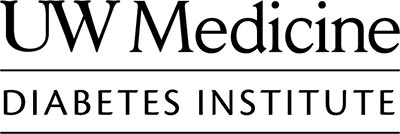Baohai Shao, PhD
Email: bhshao@uw.edu
- Research Associate Professor of Medicine, Division of Metabolism, Endocrinology and Nutrition
- Home Department Website: https://endocrinology.uw.edu/
Baohai Shao received his PhD degree from the Zhejiang University in China in 2002. He then came to the Washington University in St Louis and then to the University of Washington to do a postdoctoral fellowship in the laboratory of Dr. Jay Heinecke. After completing his postdoctoral training, Dr. Shao was appointed to the faculty in the Department of Medicine at the University of Washington, and is now a Research Associate Professor of Medicine.
Research Interests
HDL – the good form of cholesterol – removes cholesterol from macrophages, which plays a key role in protecting humans from atherosclerosis. However, not all forms of HDL are cardioprotective. Dr. Shao’s research focuses on the impact of oxidative modifications and alterations of HDL protein cargo on the anti-atherogenic effects of HDL.
One area of interest is myeloperoxidase (MPO), a heme enzyme secreted by macrophages. Another interest involves reactive carbonyls, which have been implicated in atherogenesis and diabetic vascular disease. Dr. Shao’s research has found that MPO and reactive carbonyls represent two potential pathways for the generation of dysfunctional HDL in humans.
Alterations of HDL protein composition may also impair its cardioprotective functions. By using both shotgun and targeted isotope dilution proteomics analyses, Dr. Shao’s studies indicate that diabetes, albuminuria, and end-stage renal disease (ESRD) markedly remodel the HDL proteome and support the proposal that the HDL’s protein cargo can serve as a marker—and perhaps mediator—of diabetes, kidney disease, and CVD.
One major effort is directed towards developing sensitive mass spectrometric assays to identify novel oxidation products and protein biomarkers in translational studies. Dr. Shao’s long term goal is to understand the role of HDL and dysfunctional HDL in the pathogenesis of atherosclerosis, diabetes and other inflammatory diseases in humans.
How can this research help people with diabetes?
Our goal is to establish novel mechanistic links between diabetes, HDL, and increased CVD risk. Demonstrating that oxidation of HDL proteins and/or alterations in the HDL proteome increase CVD risk in diabetes will identify candidate therapeutic targets. Our research has strong translational significance and will increase our understanding of novel treatment strategies for CVD associated with diabetes.

